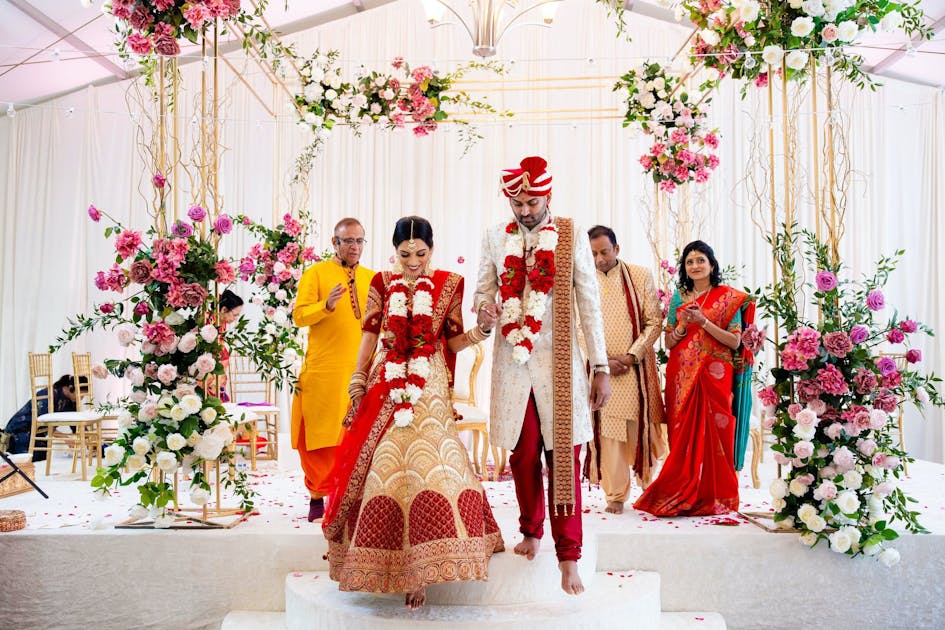Marriage is a significant milestone that is celebrated worldwide; however, the customs and family expectations that accompany it vary significantly among different cultures. These traditions are a reflection of the deeply ingrained values of love, commitment, family, and social responsibility. The examination of marriage customs and family roles exposes the manner in which diverse societies honor this lifelong relationship and maintain a balance between personal choice and collective expectations.
Marriage Traditions: Rituals That Foster Unity
Marriage customs are diverse, ranging from opulent ceremonies to intimate gatherings. However, they frequently share symbolic elements, including the exchange of gifts, vows, and blessings.
* **In numerous Western cultures**, nuptials underscore the couple’s romantic affection and personal preference. The exchange of jewels, vows, and celebrations with friends and family are frequently included in ceremonies. The wedding day is regarded as the commencement of a new existence together, marked by pleasure.
* **In South Asia**, marriages are elaborate, multi-day events that are replete with rituals. These may encompass religious rites, mehndi ceremonies, appointed meetings, and dowries. The collective character of marriage is reflected in the active participation of family members in the organization and blessing of the union.
* **Community participation, traditional music, dance, and symbolic acts such as the bride price or bride wealth** are all part of the traditional marriage ceremonies in numerous African cultures. These traditions commemorate the couple’s progenitors and establish a connection to their broader social circle.
* **Weddings in Southeast Asia** frequently incorporate local customs with religious traditions. The merging of two lineages, respect, and harmony are underscored by formal introductions, processions, and offerings between families.
Family Expectations: Beyond the Couple
Although marriage is primarily about two individuals, it also serves to unite families and, in some cases, entire communities in numerous cultures. The commencement and development of marriages can be influenced by family expectations.
* **The role of households in the selection of partners:** In certain societies, parents or elders are responsible for arranging or approving marriages, with a focus on family alliances, compatibility, or social status. Family privileges continue to be significant, even in societies that prioritize individual autonomy.
* **Marriage as a social obligation:** It is not uncommon for married couples to be expected to maintain family honor, care for elderly, and have children. These obligations extend beyond the couple’s personal lives to the well-being of their extended family members.
* **Support systems:** Families offer emotional, financial, and practical assistance, particularly in collectivist societies where multigenerational households are prevalent.
**Managing contradictions:** Compromises, negotiations, or, occasionally, tensions may result from the difficulty of reconciling personal desires with family expectations.
Contemporary Trends and Evolving Dynamics
Marriage customs and family roles have been impacted by globalization, education, and urbanization on a global scale. In terms of gender roles and companion selection, younger generations frequently prioritize autonomy. However, traditions continue to possess cultural and affective significance.
For instance,
* Certain couples integrate contemporary ceremonies with conventional customs.
* Families maintain their fundamental values while adapting expectations to accommodate new lifestyles.
* The promotion of individual rights and equality within marriage is facilitated by legal reforms.
In conclusion,
A complex tapestry of cultural history, social values, and human relationships is reflected in marriage customs and family expectations. Marriage is a profound social contract that has a lasting impact on lives that extends beyond the wedding day, regardless of whether it is celebrated lavishly or through simple vows.
Respect and empathy are fostered by comprehending these diverse traditions, which serve as a reminder that love is universal, but the methods by which we commemorate and honor it are exquisitely diverse.

Leave a Reply